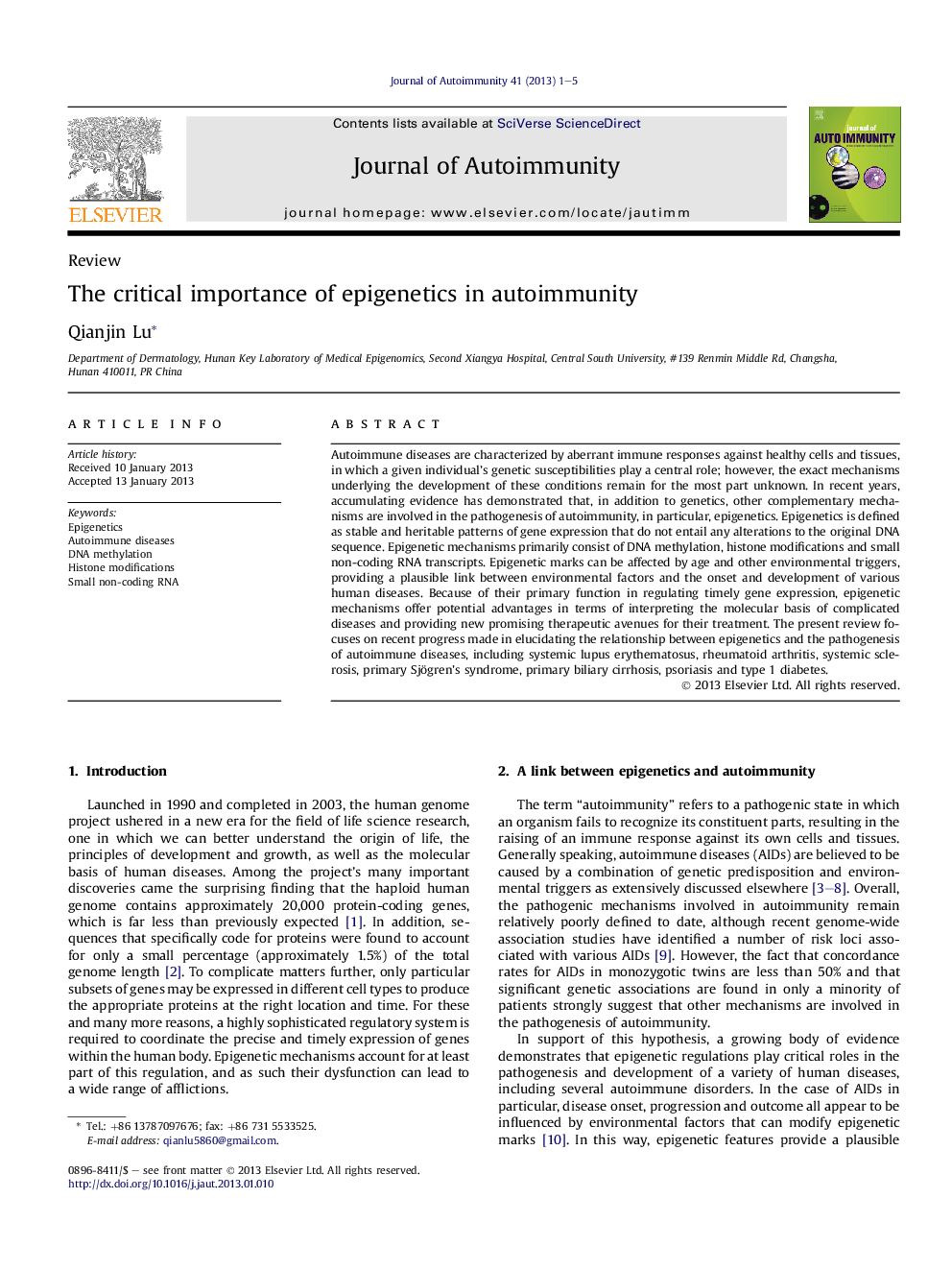| Article ID | Journal | Published Year | Pages | File Type |
|---|---|---|---|---|
| 3367892 | Journal of Autoimmunity | 2013 | 5 Pages |
Autoimmune diseases are characterized by aberrant immune responses against healthy cells and tissues, in which a given individual's genetic susceptibilities play a central role; however, the exact mechanisms underlying the development of these conditions remain for the most part unknown. In recent years, accumulating evidence has demonstrated that, in addition to genetics, other complementary mechanisms are involved in the pathogenesis of autoimmunity, in particular, epigenetics. Epigenetics is defined as stable and heritable patterns of gene expression that do not entail any alterations to the original DNA sequence. Epigenetic mechanisms primarily consist of DNA methylation, histone modifications and small non-coding RNA transcripts. Epigenetic marks can be affected by age and other environmental triggers, providing a plausible link between environmental factors and the onset and development of various human diseases. Because of their primary function in regulating timely gene expression, epigenetic mechanisms offer potential advantages in terms of interpreting the molecular basis of complicated diseases and providing new promising therapeutic avenues for their treatment. The present review focuses on recent progress made in elucidating the relationship between epigenetics and the pathogenesis of autoimmune diseases, including systemic lupus erythematosus, rheumatoid arthritis, systemic sclerosis, primary Sjögren's syndrome, primary biliary cirrhosis, psoriasis and type 1 diabetes.
► Epigenetic processes include DNA methylation, histone modifications and miRNAs. ► Aberrant epigenetic regulation is involved in the pathogenesis of autoimmunity. ► Epigenetic mechanisms offer great promise in fighting autoimmune diseases.
